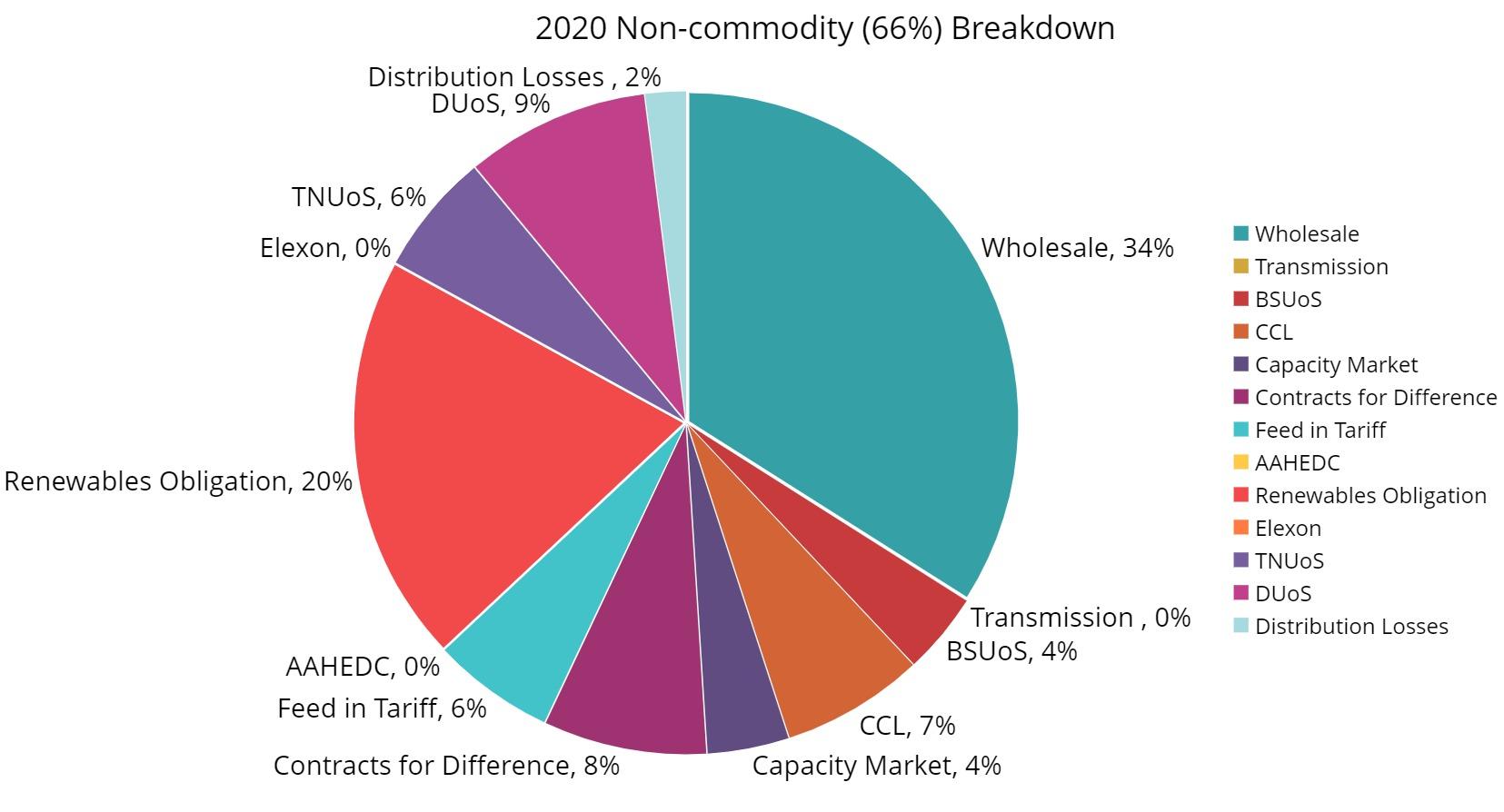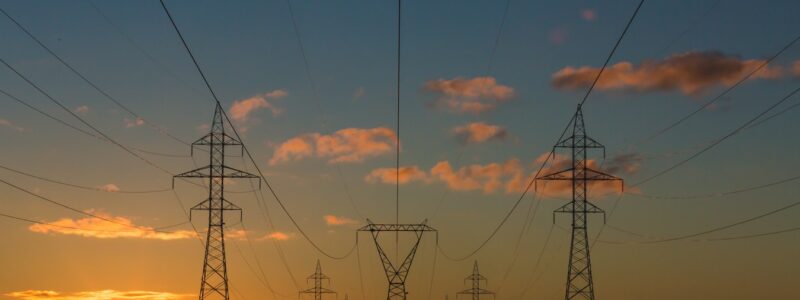Business Energy Broker
The Targeted Charging Review (TCR) will impact ALL consumer bills.
Ofgem has made the final decision on the TCR which will make changes to the Transmission Network Use of System (TNUoS) and Distribution Use of System (DUoS) charging structure.
TNUoS and DUoS charges make up 15% of a consumers electricity bill as of 2020. This represents the cost of electricity to be transported and distributed, which includes other costs such as maintenance, installation and monitoring, from the generation to the end consumer. These are also known as non-commodity costs. The total non-commodity costs make up over 60% of consumers bill.

More information about non-commodity costs available from:
https://www.utilityswopshop.co.uk/non-commodity-energy-costs/
The costs for these non-commodity charges have had changes in the past years to represent the costs of the national grid and electrical systems at the time. Ofgem has therefore proposed a further change to the charges to accurately reflect the current cost to maintain and operate the current systems in place. This is also known as the TCR. These charges will be spread fairly across consumers which Ofgem say will save an estimated £4 – £5 billion by 2040
The reformed TCR was originally planned to be implemented from April 2021 for Transmission Fixed Charges but due to delays, it will now be in place from April 2022 along with Distribution Fixed Charges.
What will change?
The main proposed changes for non-commodity costs are as follows:
- TNUoS will be a fixed charge (£/day) based on available capacity instead of the current triad method.
- DUoS will also be a fixed charge (£/day) based on available capacity instead of the current method which looked more towards the time of use.
- BSUoS (Balancing Services Use of Systems) will be a gross demand charge instead of net demand.
The current triad method used for TNUoS charges uses the three (tri) highest peaks in the winter period to bill large businesses. The three peak times can be predicted which is how consumers use load shifting to avoid the charge. If they know when the peaks are they can consume less energy during this period. By avoiding these charges large businesses can significantly reduce their bills, as previously mentioned these charges should make up over 15% of your energy bill.
There will be a new system of bands that non-domestic consumers will fall into to determine their fixed charge thresholds whilst domestic consumers will have a single allocated residual charge. This will cause suppliers to make adjustments to their billing processes to account for the TCR changes.
What does this mean for me?
Currently, some consumers have been able to avoid the non-commodity costs by reducing their consumption at peak times, expected to be used for the triad cost calculation, and consuming during non-peak times such as weekends or at night. This is known as load shifting.
This means that a consumer could use load shifting to consume the same amount of energy as someone who did not load shift but significantly reduce their bill by avoiding the TNUoS and DUoS charges. So charges are not being fairly distributed across consumers.
There are different methods and technologies that consumers can use to make the load shifting process more effective and a lot of these customers spend large amounts on such implementations. This would previously benefit them in the long-term as they would not have the non-commodity charge.

Ofgem has directly addressed this by proposing the TCR changes which will ignore the current effect of load shifting, ensuring these charges are unavoidable, and fairly charge each consumer for their energy.
The regulator has stated that the average domestic household consumer will pay fewer charges with the reformed TCR in place. Non-domestic consumers will pay more charges and those who have been able to avoid previous charges via load shifting will see the biggest impact. They also suggested that non-domestic who could not load shift may see some decreased in costs.
The overall non-commodity costs will depend on what band of consumer you fall into but Ofgem advises that consumers that see the most increases will benefit from the long-term savings when compared to the current TCR structure.
As well as protecting customers, the new TCR will help address net-zero targets within the industry by encouraging less consumption due to unavoidable costs. Consumers will be more considerate of their carbon emissions if they are charged more for their energy.
How can I reduce my bills now?
The new fixed charge is based on capacity (kVA) which determines what band of non-domestic consumer you will fall into. The higher a business’s capacity is the higher band they will be put into and the more they will get in fixed charges. So if you can reduce your capacity you can potentially consume the same amount of energy but reduce your bill.
Large energy consumers that require large capacities may not be able to make this change as they require all of their capacity for operation. This would only apply to businesses with excess capacity available.
Many businesses will have an excess capacity due to the penalties for exceeding the maximum value. So over the past few years, many consumers will have acquired an excess amount for assurance that they would not exceed their maximum and require to pay large penalty fines. So this can be managed to reduce your consumer band.
An obvious option is to reduce your consumption overall. This could mean investing in more efficient utilities that reduce or remove wasted energy. The new TCR does mean that investments into demand slide reduction (DSR) solutions that helped load shift are no longer effective. However, businesses should be looking to reduce their consumption as per net-zero goals and social values.
Free 15-minute Consultation
Utility SwopShop recognises the significant impact that TCR will have on ALL utility consumers. This is important for everyone to understand and assess the financial impacts that will follow.
We want to help your business which is why we are offering a FREE 15-minute consultation with one of our subject experts. The aim of this is to provide businesses with an understanding of the who, what, when, where and why’s of TCR.
More information is available by speaking to Jason Thackray on 0333 9000 246 or email :
jason.thackray@utilityswopshop.co.uk
Utility SwopShop can carry out an in-depth analysis of customer data and provide advice for changes that will reduce the financial impact that TCR will have on your business. Our experts can look at your capacity and demand profile to identify where to make changes so that you are ready for the new charging structure and avoid unnecessary cost.
Ultimately the TCR will change the way businesses pay for their power and reductions in consumption combined with an improved procurement strategy is the answer. You can contact our team to discuss this process further and how we can help you.